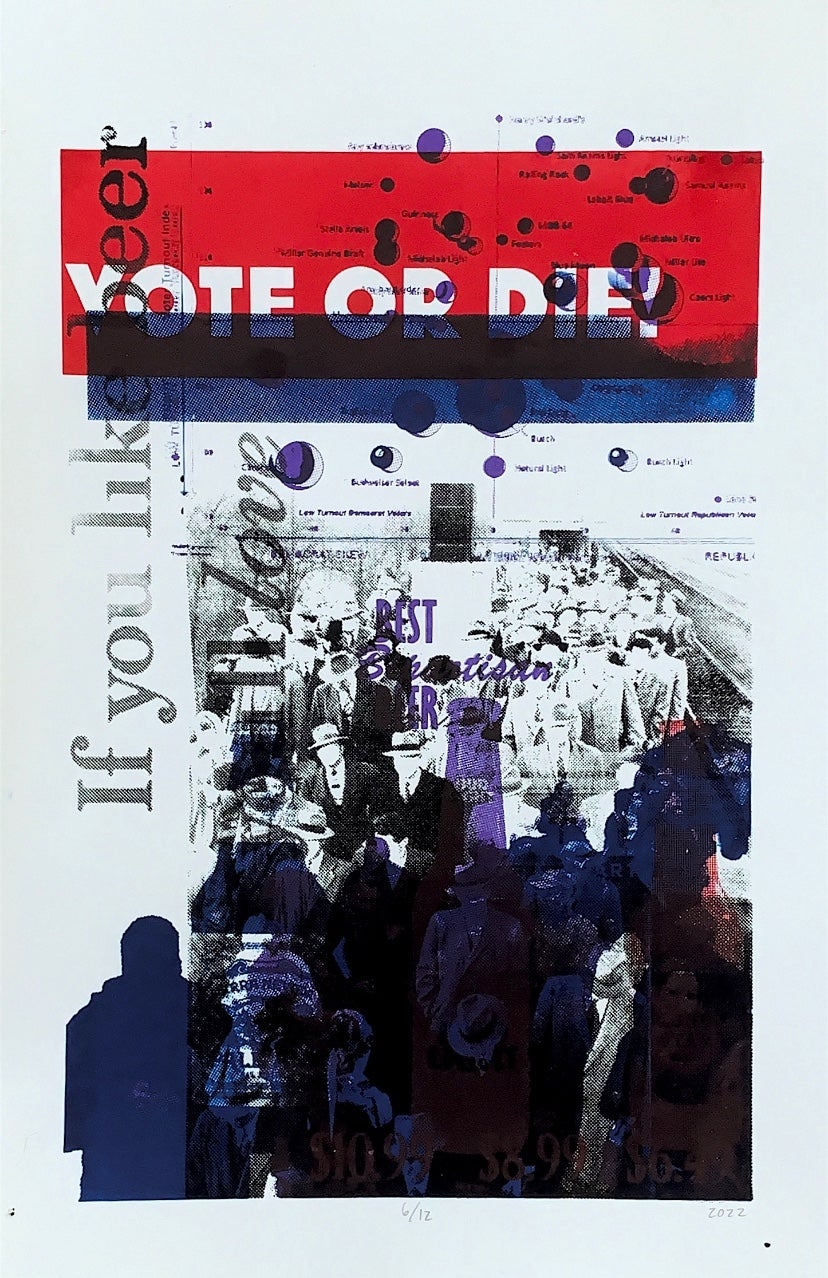
Chelbi Robinson
The Political Compass of Beer in America
I am an interdisciplinary artist with my current work primarily exploring installation and public art using found objects that have meaning relevant to my experiences. My work frequently discusses social issues including class disparity and sustainability. Public art becomes a means of reaching my target audiences: wealthier individuals who have the capabilities to solve the issues I am addressing, and lower-class individuals who are directly affected by the same issues. My commentary is often rooted in my upbringing with each of my separated parents, who experienced and combated class disparity differently. Through my recent work and reflection of my past, I have discovered an attachment to and often hoarding of material items within the lower-class experience, as these items give the illusion of wealth. At the same time, they remind the individual of their inability to easily dispose and buy new. With this, I utilize objects of meaning—essentially personal objects of mine that further contribute to the meanings of my work as I feel they more accurately and genuinely portray my life and experiences, even if it isn’t recognized by the viewer. This work becomes an act of catharsis to my own exploration of my past and relationship with class.
Other mediums used in my works include printmaking, artist books, and performance art. Each of these mediums have elements of accessibility that further apply to my work as an artist. Printmaking and performance become acts of labor to my concepts. Artist books become handheld works of art that address my concepts physically in a way that other mediums would not be able to.
Varied lighthearted studies have been done on the correlation between political affiliation of a person and what beer they drink. Most graphs display the data as a scale of Democrat to Republican on the x axis, and voter turnout on the y axis. I also began questioning how these factors relate to income. In The Political Compass of Beer in America, I found that the most conservative beer with the lowest voter turnout is the least expensive, and the most liberal beer with the highest voter turnout is the most expensive. Conservative ideology preys on the working class and their goals of simply making ends meet. At the same time, they suppress the votes of the poor, pitting the classes against one another. This search to understand why the average working-class conservative thinks the way they do may seem too forgiving considering social factors, but this understanding based on my experience with these exact people is perhaps helpful in us reaching the same goals.
